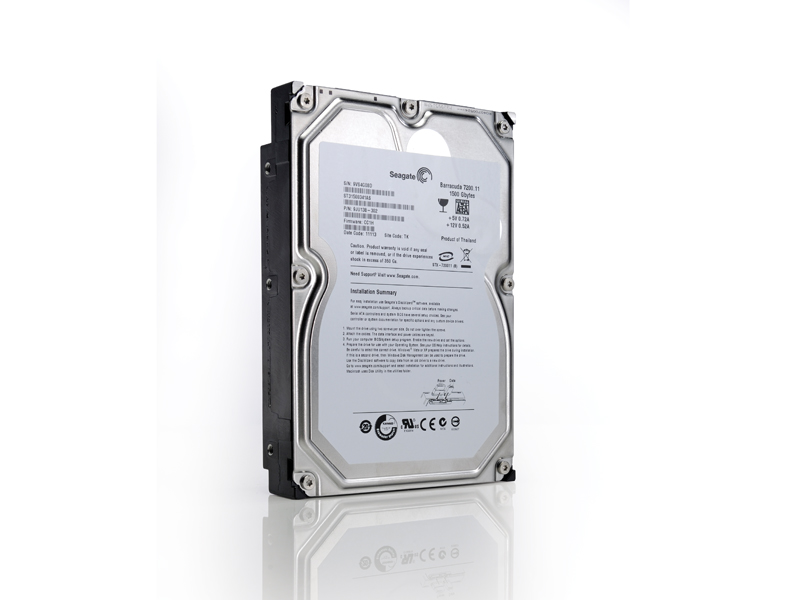TechRadar Verdict
Pros
- +
Good price
- +
Decent capacity
- +
Read/Write performance
Cons
- -
Seek times a bit low
Why you can trust TechRadar
Seagate's 11th generation 1.5TB Barracuda 7200.11 hard disk was the first 1.5TB disk to market, and although it's been around for a while, it's still a very capable and popular drive.
It's easy to see why, with its combination of performance, capacity, price and fairly low power consumption. It's a reflection of just how far storage technology has come in a relatively short space of time that a drive that was state of the art just over a year ago – 7,200RPM spindle speed, Perpendicular Magnetic Recording (PMR) technology, a compact disk density of 375GB, Native Command Queuing (NDQ) – is old hat among the 2.5TB and 3TB monsters available now.
The ST31500341AS uses four platters to get to its 1.5TB capacity, backed by a 7,200rpm spindle speed and a 32MB cache. Despite having been around for a while, the ST31500341AS offers an even better sweet spot for price versus capacity now than when it was launched, especially considering hard drive prices are now as cheap as they've ever been.
Although it's not as blisteringly fast as some high performance mechanical drives, it's still perfectly good for use singularly in gaming and multimedia systems, or put into multiples in a RAID array for something like a workstation.
It may not have the environmental credentials of Western Digital's Caviar Green series, but with quoted figures of 12 Watts operating, 11.6 Watts when in seek mode and 8 Watts when idle, it isn't a power hungry beast either.
Its access time is a little on the low side, but that's our only criticism beyond the limited three-year warranty instead of the original five.
Follow TechRadar Reviews on Twitter: http://twitter.com/techradarreview
